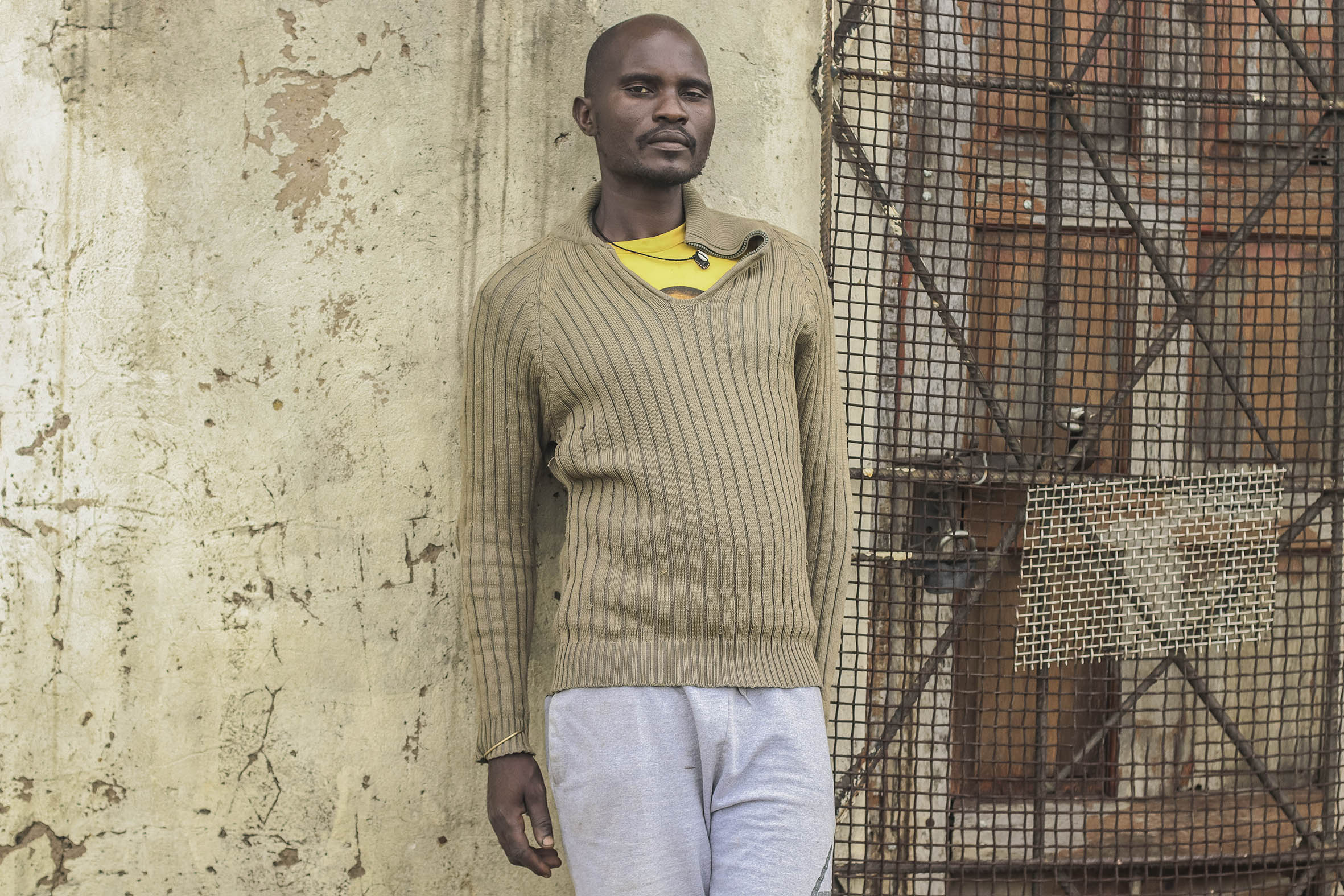‘Jobs are scarce and the quality of life is just sad’
A recent slurry spill into important rivers in rural KwaZulu-Natal has made survival even harder for villagers who depend on their water. But Okhukho residents say it’s part of living near a mine.…
Author:
18 February 2022

Residents of Okhukho, a rural community near the town of Ulundi in northern KwaZulu-Natal, say they are used to not having access to either safe or enough drinking water as their sources have been degraded for years. The latest scare came when a slurry dam collapsed at the Zululand Anthracite Colliery, whose operations surround their village, and coal mining effluent flowed into nearby rivers and land.
More than 1.5 million litres of toxic tailings were discharged after the collapse on 24 December. Minister of Forestry, Fisheries and the Environment Barbara Creecy confirmed the severity of the spill “affecting rural communities and the Hluhluwe-iMfolozi reserve as well as posing a risk to the iSimangaliso Wetland Park” on 14 January. She also said a team of environmental management inspectors would further investigate the spill “of polluted mine waste water into river systems flowing through important conservation areas”.
“The Umfolozi and Mvalo river systems were critically affected,” says Jikile Qoma, 38, an Okhukho resident. “We drank the water for about two weeks before we were informed about the toxins in the Umvalo and Umfolozi. The mine tells us that they informed the induna, but how can you rely on one person to alert an entire village not to drink from the river?”
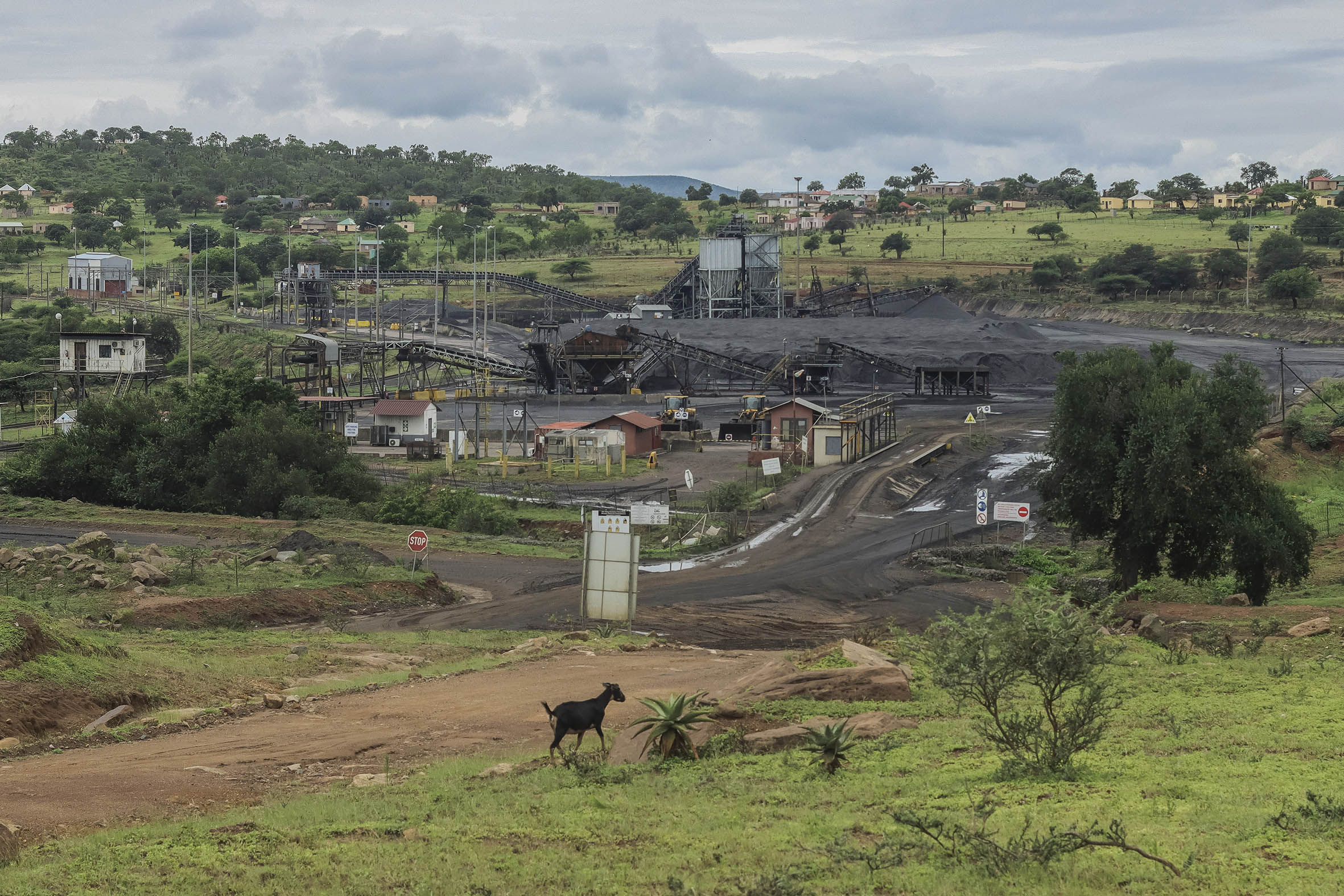
But the mine’s environmental superintendent, M’sawenkosi Buthelezi, says it “is not aware of any person or animal that felt sick as a result of the incident. Despite invitations to the various community forums to bring any such claims to the attention of Zululand Anthracite Colliery, none have been received up to date.”
The Umfolozi and Umvalo rivers supply drinking water for both residents and their livestock. But the water quality and quantity have been deteriorating, partly owing to pollution from the colliery and because it draws huge quantities for its operations. Extended droughts have also contributed to the problem in the recent past.
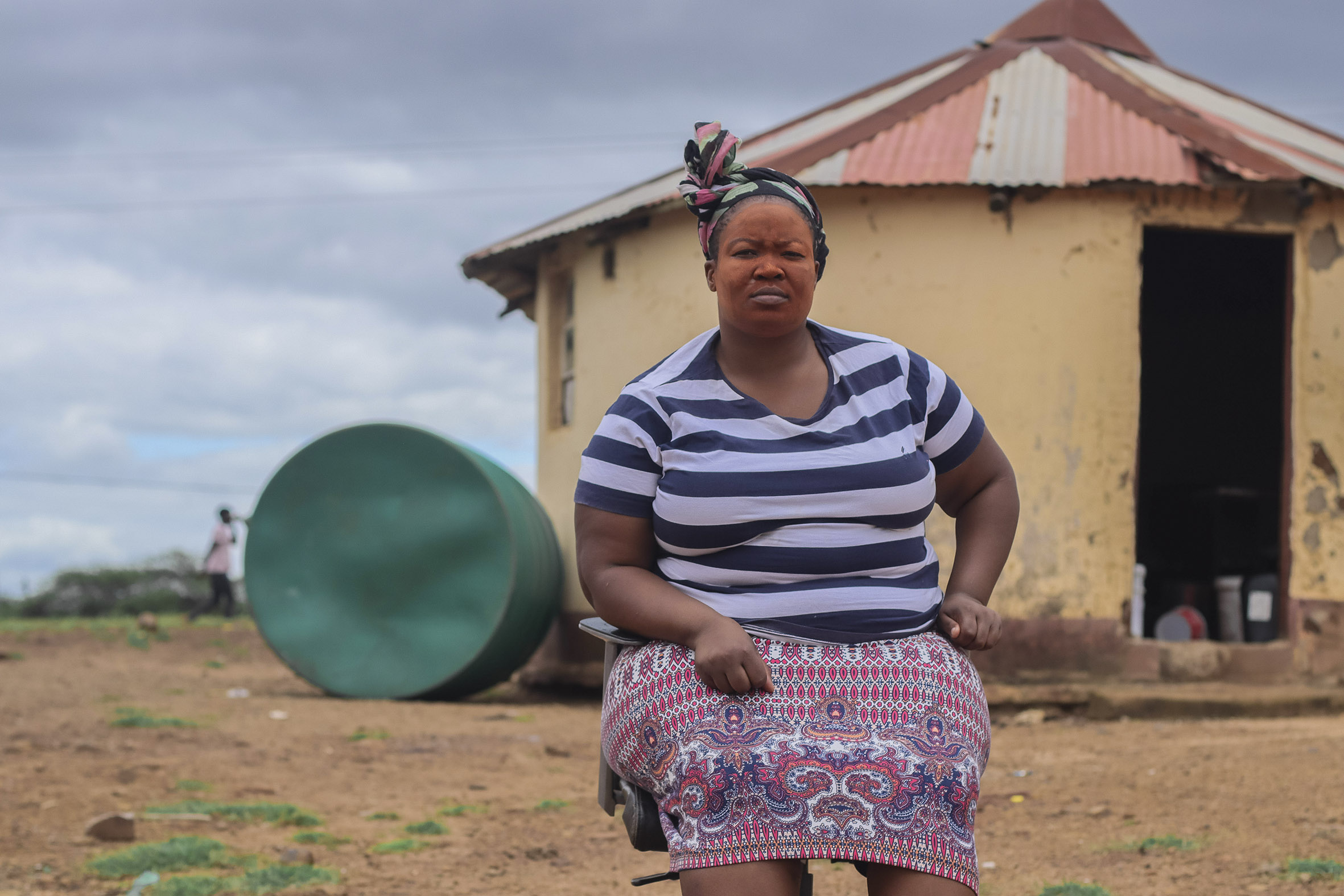
A life of struggle
Okhukho village is situated about 40km from Ulundi. There are no tar roads and it feels isolated. Qoma, whose homestead is scattered with rondavels, says the struggle for safe and sufficient water for drinking and irrigation is particularly hard for the women of Okhukho. She has been buying water for up to R500 from locals with bakkies and trucks.
“The taps [that the mine built] are far and they can be dry for days without any warnings. I’ve since stopped fetching water at the mine and now rely on the child support grant to purchase about six R50 containers a month. Although this is often not enough, we have to make sure to reuse and sacrifice some luxuries,” says Qoma.
“I only use about two jugs of water because I have to save some for my children to bathe and go to school. There is washing and there is cooking. Umfolozi has been our last hope, and even that’s been unreliable. We have had to adopt new ways of life and learn to live without water.”
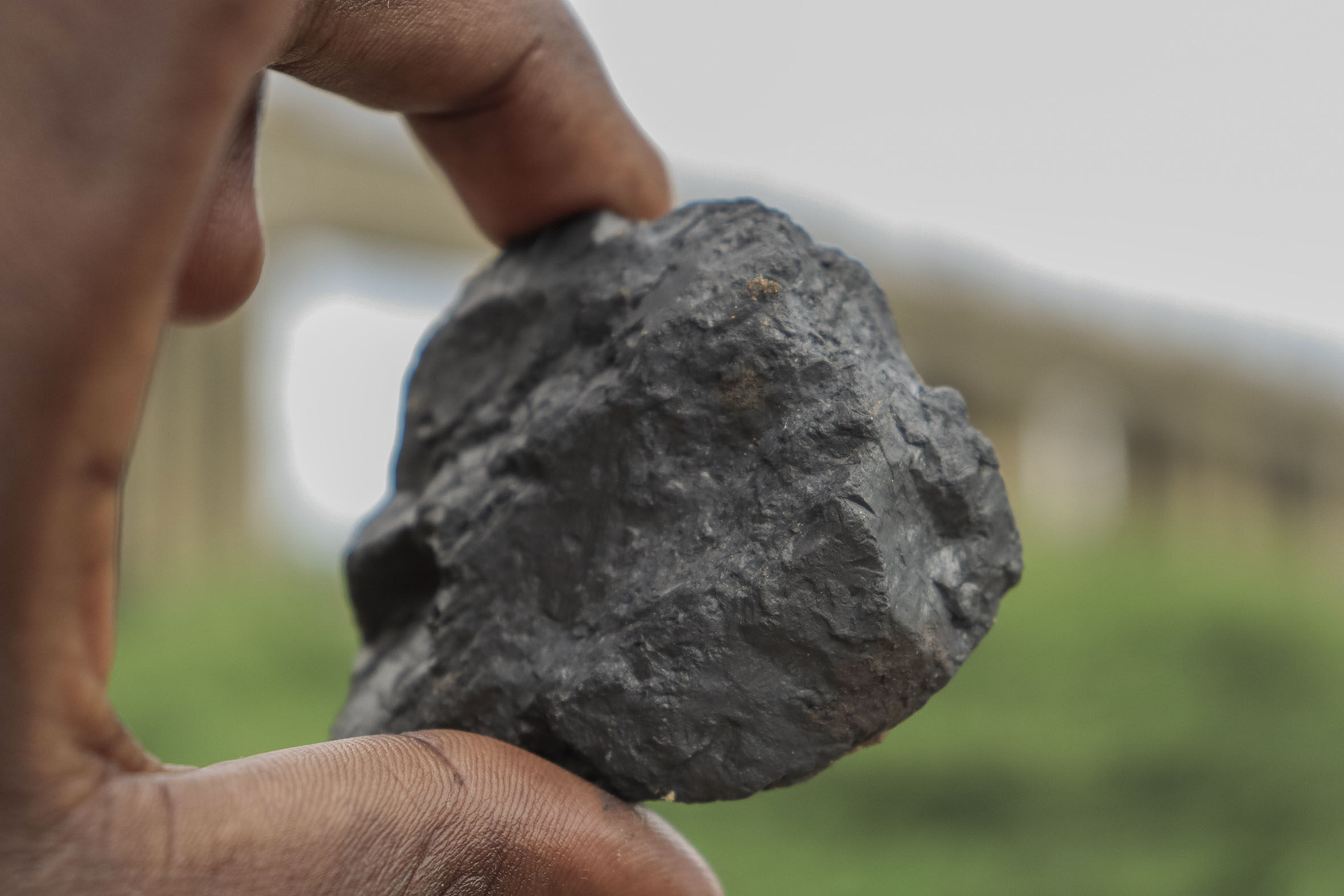
The mine, however, says it is not to blame for some of the residents’ water challenges. “Okhukho communities are one of the early beneficiaries of the water supply by the mine,” says Buthelezi. “The Mvalo River flows adjacent to the Okhukho community. It is a non-perennial river and is dry during certain months of the year. This is also evident at upstream points before the colliery where there are no mining activities. The water flow in the Mvalo River is not impacted by the underground mining activities of the Zululand Anthracite Colliery.”
Three of Qoma’s neighbours, Ntombiyenkosi Masondo, 41, Fikelaphi Shongwe, 42 and Zothile Qoma, 43, sit next to her under the tree where she is washing her clothes. “We buy everything here,” says Shongwe, “from water and food to accessing basic health services. It is costly to survive in this village that is next to a multimillion rand mine. It’s unjust.”
A question about water availability sparks a loud response in unison from the women: “Awekho amanzi (there is no water).”
Qoma’s neighbour, Zothile Qoma, adds: “We send young children to the river and even that’s not safe or efficient because the pathway to Umfolozi is a deep forest and also far away. You can only manage to get one or two buckets. Now there is nothing. We can barely survive. The river is dirty and it is making us sick. I have to walk far and it has become the life people are living here.”
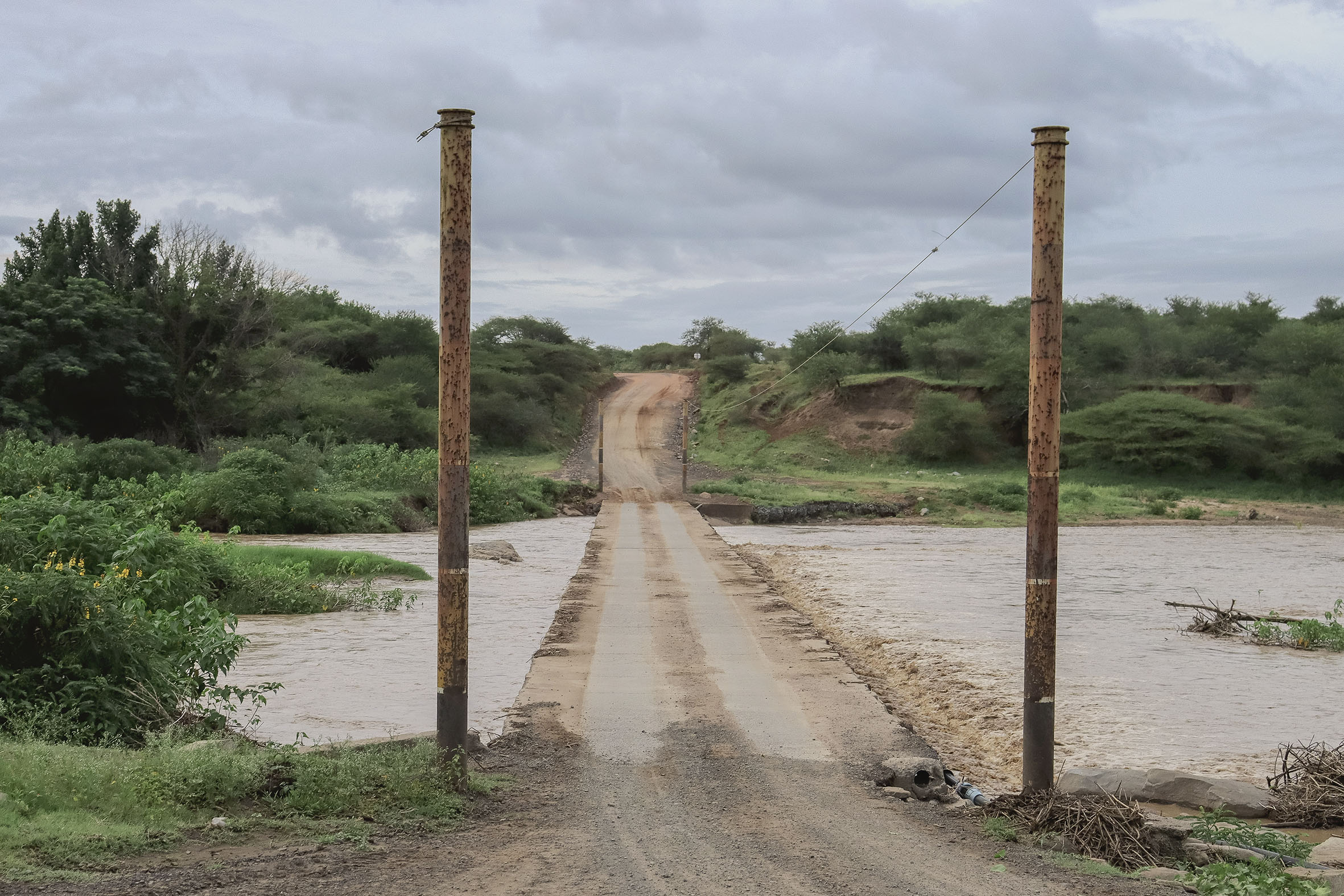
No benefits
The Zululand Anthracite Colliery was opened in 1985 and owned by BHP Billiton until 2005, when it was sold to Riversdale Holdings and its minority partner, Maweni Mining Consortium. Rio Tinto took over from 2011 until it was acquired by mining investment firm Menar in 2016.
In June 2012, the then department of mineral resources ordered the mine to stop its activities because it was contravening regulations of the Mineral and Petroleum Resources and Development Act. It was also not complying with health, safety and environmental regulations.
In 2014, the KwaZulu-Natal Department of Economic Development, Tourism and Environmental Affairs gave the company a “slap on the wrist” fine – R497 000 – for unlawfully developing three mine shafts between 2006 and 2010 without environmental authorisation.
Community activist Msizi Myaka, 39, says the colliery’s activities all around Okhukho are having detrimental impacts on local communities and their environment, and they get nothing in return. “We’ve never got anything from the coal mine. We haven’t seen what youth development looks like, or the meaningful value of mining in our lives here. We’re blatantly excluded from benefitting and participating in this resource.”
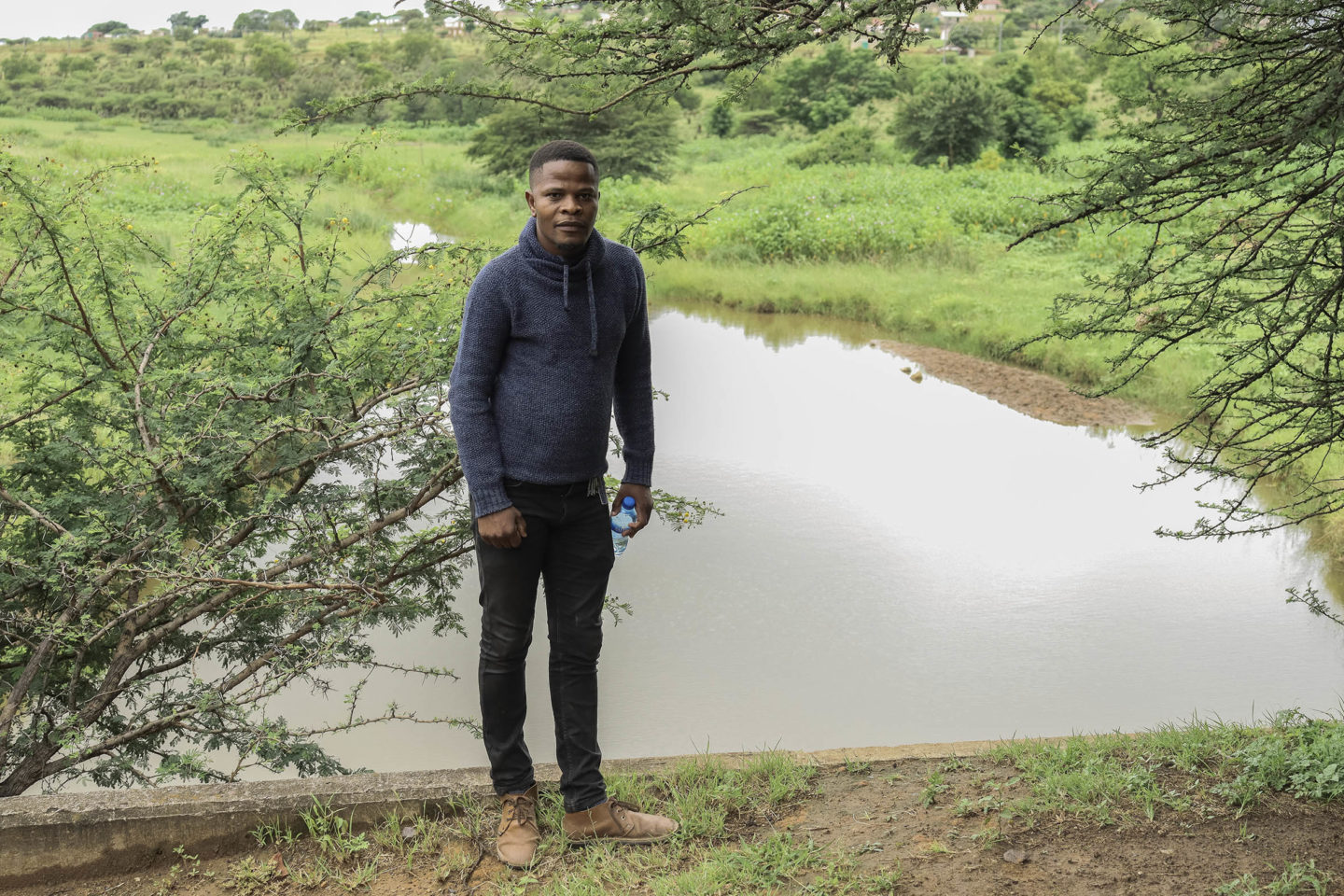
Myaka says the degradation of the environment exacerbates the rural residents’ already tough living conditions because they depend on natural resources for survival. “Our lives are cheap,” he laments. “This mine serves no value to this community, and that is because it has found ways to function and drive the colonialism mandate to exclude people through the traditional council, the Ingonyama Trust.”
From the veranda of a tuckshop, Mabusa Mbatha, 61, seems distressed as he points to where one of the colliery’s mining shafts has replaced a communal crop field. He says the mine has crippled the residents’ ability to grow food.
“Just look at this dusty life. We can barely recognise the trees here and the soil rejects everything we plant,” says Mbatha. “Everything is dry. Jobs are scarce and the quality of life is just sad. We look across the road where one of the crop fields used to be, we see the trucks going up and down. It’s bustling every day, and we’re just stuck here.”
Standing next to Mbatha is Khulani Zondo, 37, who is unemployed and relies on odd jobs at the mine. He usually attaches tarpaulin covers on the trucks that transport anthracite and says he gets R10 per truck. “We want clean and accessible water. We go for days without a single drop from the taps. Our children can’t breathe properly and we can barely drink rainwater, it’s all black,” says Zondo.
